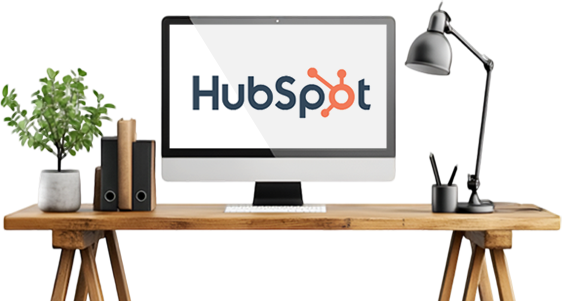If you're feeling the pinch while trying to scale your marketing agency's offerings without overburdening your team, trust me, you're in good company. It's a common challenge that many of us face in this industry.
Considering that 63% of businesses are leaning into outsourcing for their marketing needs, embracing white-label services is becoming an increasingly attractive strategy. In this article, we'll dive deep into how this approach can revolutionize your agency's capabilities and delight your clients to boot.
Get ready – we’re about to reveal some powerful strategies for growth!
Key Takeaways
- White-labeling lets marketing agencies put their name on another company's products and services. This saves time and money because they don't have to create things themselves.
- By using white-labeling, clients get more choices from one place. They like getting all the services they need without going to different companies.
- When picking a white-label partner, agencies need to talk clearly and pick someone who can do good work and fits their values.
- Agencies that use white-labeling can offer more things like SEO or social media help, even if they are not experts in these areas. This helps them grow faster.
- Clients save money with white-labeling because they get special stuff made just for them without paying to make these new services themselves.
Understanding White-Labeling
White labeling is like putting your name on another company's product. Imagine you have a marketing agency and want to offer more services without doing all the work yourself.
You can find products or services others make and then add your brand. It's as if you're the one who created it. This way, you give your clients more choices and help out other businesses, too.
Your business gets stronger with white-labeling. You sell these ready-made items like yours, saving time and money on making new things from scratch. Your clients will see that you have many different services under your brand, which can make them trust and choose you more often for their needs in marketing partnerships or branding services.
The Role of White-Labeling in Marketing Agencies
Offer more without having to do all the work yourself. That's what white-labeling does for you and your agency. It means you can sell services like SEO or social media management that another company makes but with your brand on it.
This way, you can focus on what you're good at and still give yourself what you need.
It also helps you look big and professional. Clients see a wide range of services under one roof and trust you more. You keep your brand strong while behind the scenes, and experts take care of the specialized stuff.
Benefits of White-Labeling for Marketing Agencies
White-labeling allows agencies to diversify their services, streamline processes, and maintain brand consistency, ultimately leading to increased revenue and growth opportunities. To learn more about how white-labeling benefits marketing agencies and their clients, keep reading!
Diversification of services
You offer more kinds of services because of white-labeling. Your clients want different things, and you can give them what they need without learning new skills or hiring more people. This means your marketing agency grows faster, and your clients are happy because they get all the solutions from one place.
It's like having a toolbox with every tool you might ever need.
Your partners do great work that you can put your brand on. This lets you sell more to your clients while keeping your team small. You handle the selling and relationships, and your white-label partners handle the behind-the-scenes work.
This way, you can focus on what you're good at and trust others to fill in the gaps seamlessly.
Streamlined processes
Streamlined processes in white-labeling mean efficiency and speed. It’s about simplifying tasks and making things run smoothly. When working with a white-label partner, the streamlined processes allow for quicker turnaround times and reduced complexities, ultimately benefiting both the marketing agency and its clients.
By cutting out unnecessary steps and focusing on what matters most, we can deliver high-quality services promptly and stay ahead of the competition.
By embracing streamlined processes through white-labeling, we can enhance our service delivery, optimize resources effectively, and ensure a seamless experience for our clients. This approach not only saves time but also boosts overall productivity, leading to greater satisfaction for everyone involved - from clients to partners.
Maintaining brand consistency
After streamlining processes, maintaining brand consistency is crucial for white-labeling success. Consistent branding across all marketing materials and client-facing communications helps in reinforcing the agency's identity and values.
It builds trust and credibility with clients by presenting a cohesive and professional image. By prioritizing brand consistency, agencies can ensure that their services are easily recognizable and distinguished in the competitive market, ultimately leading to stronger customer relationships and higher client satisfaction.
As part of our commitment to providing exceptional marketing solutions, we understand the importance of upholding brand consistency throughout every aspect of our client collaboration.
Looking to empower your agency? Learn more here.
Advantages of White-Labeling for Clients
Clients benefit from white-labeling through access to specialized services that may not be within the agency's core offerings, increased convenience and efficiency in obtaining a multitude of services under one roof, and cost-effectiveness in receiving high-quality customized solutions tailored to their specific needs.
Access to specialized services
Clients gain access to specialized services through white-labeling. This means they can benefit from the expertise and capabilities of other agencies without needing to develop those services in-house.
This ensures that clients receive high-quality, customized solutions tailored to their specific needs and goals, enhancing the value they receive from the marketing agency's offerings.
Moving forward to "Convenience and Efficiency," clients also experience streamlined processes that increase their overall satisfaction with the services provided.
Convenience and efficiency
Clients appreciate the convenience and efficiency that white-labeling offers. By partnering with a marketing agency that provides white-labeled services, clients can easily access a wide range of specialized solutions without seeking multiple vendors.
This streamlined approach saves time and effort, allowing clients to focus on their core business activities while still receiving high-quality marketing services tailored to their needs.
Furthermore, the efficient process of white-labeling ensures that clients receive prompt and reliable deliverables, minimizing delays and administrative burdens. With white-labeling, clients can confidently rely on their marketing agency to consistently deliver results promptly, boosting overall productivity and effectiveness in meeting their business objectives.
Cost-effectiveness
White-labeling can be a cost-effective solution for clients. It allows them to access specialized marketing services without the expense of developing these capabilities in-house. By leveraging white-label partnerships, clients can benefit from high-quality services while saving on operational costs, making it a win-win situation for both the agency and the client.
Moving on to "Factors to Consider When Choosing a White-Label Partner," let's explore key aspects that can help you make informed decisions about your white-labeling strategy.
Factors to Consider When Choosing a White-Label Partner
When considering a white-label partner, transparency and open communication are crucial for a successful partnership. It's also important to assess their expertise, capabilities, and how well they align with your company values and goals.
Transparency and communication
Transparency and communication are crucial when choosing a white-label partner for your marketing agency. It's important to have open and honest discussions about the services they'll provide, the processes they follow, and the level of involvement you can expect.
Clear communication helps align expectations and avoid misunderstandings, ensuring that both parties are on the same page right from the start.
Furthermore, transparency fosters trust between your agency and your white-label partner. By keeping each other informed about progress, challenges, and any necessary adjustments, you can build a strong working relationship based on mutual respect and understanding.
Expertise and capabilities
After ensuring transparency and effective communication, the next consideration is the expertise and capabilities of a white-label partner. It's crucial to partner with an agency with a high level of skill and knowledge in the specific services offered.
Look for a white-label partner with a proven track record of delivering high-quality results, directly impacting your ability to provide exceptional service to your clients.
Assessing their expertise ensures you can confidently meet your client's needs while maintaining a strong brand identity throughout all services provided.
When choosing a white-label partner, one must consider their proficiency in marketing strategies, business development, and client-focused services. A comprehensive understanding of various industries and the ability to customize solutions are vital when evaluating their capabilities.
Alignment with company values and goals
Having the expertise and capabilities is important, but finding a white-label partner who aligns with your company values and goals is equally crucial. This ensures that the collaboration will reflect positively on your agency and resonate well with clients, maintaining trust and credibility in the process.
When choosing a white-label partner, seek one whose principles and objectives are in harmony with yours, laying a solid foundation for a successful partnership that benefits both your agency and your clients.

How White-Labeling Benefits Marketing Agencies and Their Clients
White-labeling benefits marketing agencies and their clients by increasing revenue and growth opportunities, expanding client service offerings, and building trust and credibility in the market.
Increased revenue and growth opportunities
White-labeling creates opportunities for increased revenue and business growth. Expanding your service offerings through white-label partnerships can attract new clients and cater to a wider range of needs.
This collaborative approach allows your agency to tap into new markets and diversify your revenue streams, leading to enhanced financial stability and sustained growth over time.
Furthermore, white-labeling enables you to leverage the expertise of specialized partners, providing high-quality services that meet the distinct needs of your clients. As a result, this strategic collaboration not only boosts revenue but also fosters long-term client relationships by delivering comprehensive solutions tailored to their unique requirements.
Expands service offerings for clients
Expanding service offerings for clients is crucial in meeting diverse needs and staying competitive. By white-labeling specialized services, marketing agencies can enhance their value proposition and cater to a broader range of client requirements.
This not only strengthens the agency-client relationship but also positions the agency as a one-stop solution provider, offering more comprehensive support across various marketing functions such as SEO, content creation, or social media management.
Moreover, expanding service offerings through white-labeling allows clients to access an extended suite of tailored services without engaging multiple vendors or specialists. This streamlines the client experience and fosters stronger partnerships by demonstrating the agency's commitment to being a trusted advisor with an extensive repertoire of capabilities and resources at its disposal.
Builds trust and credibility
Utilizing white-label services builds trust and credibility with clients. You demonstrate expertise and reliability by offering specialized and high-quality services under your brand.
This strengthens the client-agency relationship, instilling confidence in your ability to deliver consistent results.
Trust and credibility are crucial for long-term partnerships with clients. Providing top-notch white-labeled solutions solidifies your position as a trusted advisor in meeting their evolving needs, fostering lasting relationships built on mutual respect and value.
As we delve into the benefits of white-labeling for both marketing agencies and their clients, it's evident how this strategy contributes to sustainable business growth.
Implementing White-Labeling: Best Practices for Success
To ensure successful white-labeling, it is crucial to clearly define roles and responsibilities, communicate openly with clients, and consistently deliver high-quality results. These best practices will help build trust and credibility while maximizing the benefits of white-labeling for both marketing agencies and their clients.
Clearly defining roles and responsibilities
When defining roles and responsibilities in a white-label partnership, it's crucial to be specific and transparent. This involves outlining who is responsible for each task, establishing clear timelines, and setting expectations for deliverables.
By doing so, we can avoid confusion or misunderstandings and ensure that the client receives consistent quality across all services. A well-defined structure also helps streamline processes and maintain efficient communication with all parties involved.
This clarity is essential for building trust and credibility with our clients while delivering successful white-labeled solutions.
In our agency, we prioritize transparency by clearly outlining the scope of work, assigning specific tasks to each team member, and ensuring open lines of communication with our clients throughout the process.
Open communication with clients
Establishing open communication with clients is crucial for successful white-labeling partnerships. By maintaining clear and transparent lines of communication, marketing agencies can ensure that clients are informed about the services being provided under white-label agreements.
This helps build trust and credibility, as clients feel involved and valued throughout the process. Regular updates, feedback sessions, and a willingness to promptly address any concerns or queries contribute to fostering strong client relationships.
Additionally, open communication allows for a better understanding of client needs and expectations. This insight enables marketing agencies to tailor their services more effectively, providing specialized solutions aligning with each client's goals and values.
Delivering high-quality results
In white-labeling, delivering high-quality results is crucial for the marketing agency's and its clients' success. By consistently providing top-notch work, you can strengthen your reputation as a reliable partner and resource for your clients.
This contributes to client satisfaction, builds trust, enhances brand credibility, and fosters long-term relationships. It's essential to prioritize quality in every aspect of your service delivery to ensure that we meet and exceed your clients' expectations.

Conclusion
In conclusion, white-labeling offers marketing agencies and their clients numerous benefits. It allows agencies to diversify services, streamline processes, and maintain brand consistency.
For clients, it provides access to specialized services, convenience, efficiency, and cost-effectiveness. Choosing the right white-label partner is crucial for success. Overall, embracing white-labeling can lead to increased revenue for agencies and expanded service offerings for clients while building trust and credibility between both parties.
Click here to learn more about agency marketing.
FAQs
1. How does white-labeling benefit marketing agencies from the client's perspective?
-
- Comprehensive Service Offerings: White-labeling enables agencies to offer a broader range of services, providing clients with comprehensive solutions under one roof.
- Consistent Quality: Clients benefit from consistent service quality as agencies leverage the expertise of white-label partners who adhere to established standards.
- Single-Point Accountability: White-labeling allows agencies to act as a single point of contact for clients, streamlining communication and accountability.
2. In what ways does white-labeling contribute to improved efficiency and cost-effectiveness for marketing agencies, ultimately benefiting their clients?
-
- Quick Resource Scaling: White-label services enable agencies to scale resources quickly based on client demands, ensuring efficient project handling without delays.
- Access to Specialized Expertise: Clients benefit from access to specialized expertise through white-label partnerships, ensuring that projects are handled by skilled professionals.
- Competitive Pricing: White-label services offer cost-effective solutions, allowing agencies to provide competitive pricing to clients while maintaining profitability.
3. How does maintaining control over branding and client relationships impact the overall client experience when agencies utilize white-label services?
-
- Brand Alignment: Agencies can apply their branding to white-label services, ensuring a consistent brand identity and a seamless client experience.
- Direct Client Interaction: Clients continue interacting directly with the agency, fostering trust and transparency in the client-agency relationship.
- Customization: White-label services can be customized to align with the client's unique brand positioning and specific requirements, enhancing overall satisfaction.
4. Can white-labeling contribute to a more strategic and collaborative partnership between marketing agencies and their clients?
-
- Focus on Core Competencies: White-labeling allows agencies to focus on their core competencies, ensuring clients benefit from strategic planning and specialized services.
- Tailored Solutions: Agencies can tailor white-label services to meet clients' specific needs, fostering a collaborative approach to project development.
- Client-Centric Innovation: White-label partnerships enable agencies to bring innovative solutions to clients, creating a mutually beneficial and strategic partnership.
White-labeling benefits marketing agencies by enhancing efficiency and scalability and provides clients with a more comprehensive, consistent, and client-centric experience.








